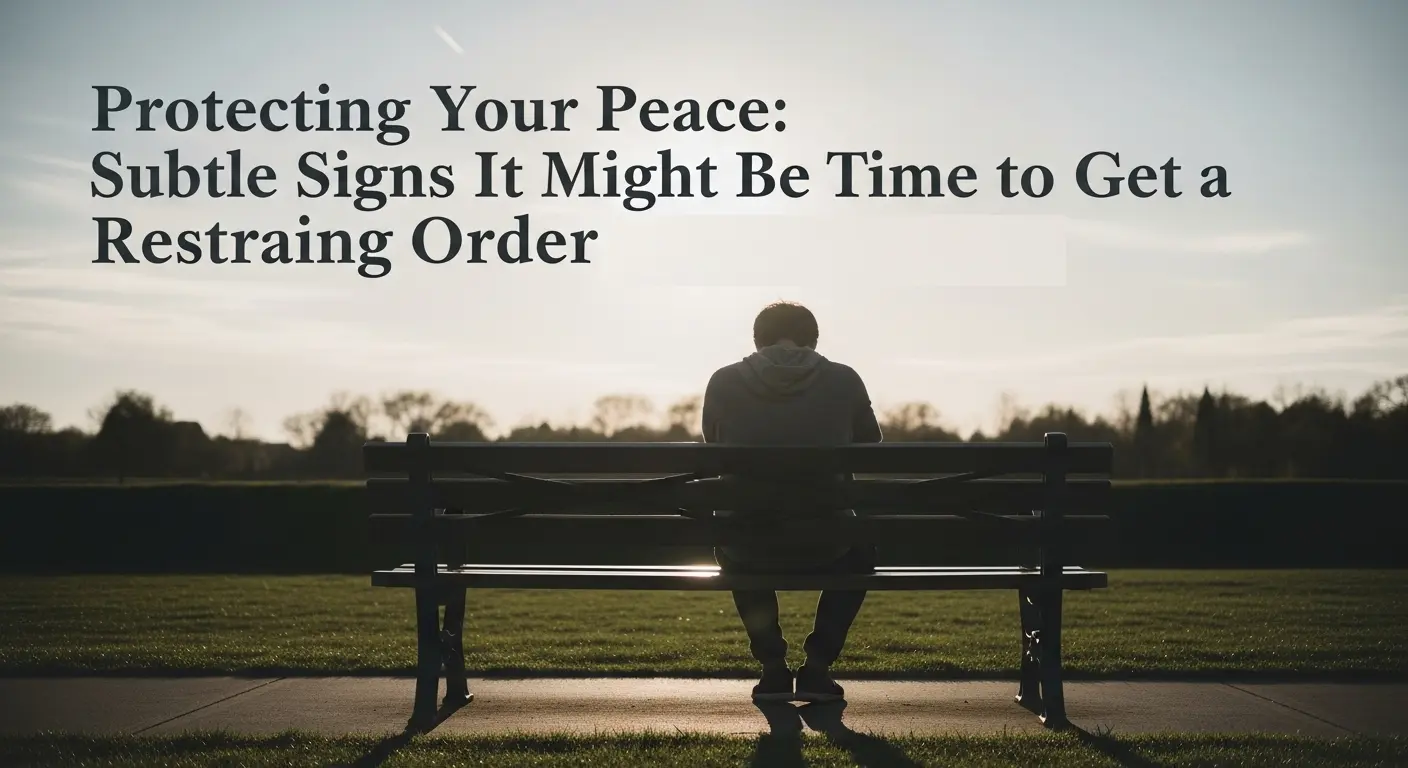Signs you may need a restraining order include experiencing physical abuse, threats of harm, stalking, or persistent harassment that causes fear for your safety. This legal measure is meant to protect individuals from dangerous or threatening behavior, whether in a domestic relationship or from someone you don’t know. A protective order can prohibit the accused from contacting, threatening, or approaching you and can be issued based on different circumstances, such as domestic violence or civil harassment. It serves as an important legal barrier for safeguarding your well-being.
Recognizing when you need legal protection can be challenging, especially when fear and emotions are involved. A restraining order is a legal tool designed to protect individuals from harassment, threats, abuse, or other harmful behavior. If someone’s actions make you feel unsafe or constantly on edge, it may be time to consider legal action. This post highlights key warning signs and explains how a restraining order lawyer in Jacksonville can help protect your safety and rights.
Repeated Harassment or Threatening Behavior
One of the most common signs that a restraining order might be necessary is ongoing harassment. This may include:
- Constant unwanted calls or texts.
- Repeated social media contact.
- Showing up at your home, workplace, or school.
- Threats to harm you, your property, or your loved ones.
Your feelings of unsafety are valid, no matter what the harasser claims. If this behavior persists after you’ve asked them to stop, legal protection may be necessary. A restraining order lawyer will thoroughly document incidents, strengthening your court case.
Physical Abuse / Intimidation

If you’ve experienced physical harm or threats of harm, do not hesitate to act. Physical violence including pushing, hitting, or grabbing is serious. In many cases, law enforcement can issue an emergency protective order on your behalf. However, if the abuse continues or escalates, a permanent or long-term restraining order may be necessary. Courts take these matters seriously, and legal representation can help you pursue safety measures. A skilled attorney can guide you through filing documents, attending court hearings, and gathering evidence of abuse.
Stalking / Surveillance
Being followed, watched, or tracked without your consent is another serious warning sign. Stalking may include:
- Tracking your movements or location
- Showing up unexpectedly at your regular places
- Using technology to monitor your devices or social media
- Leaving unwanted gifts or notes
Individually, these acts may seem minor. But a consistent pattern causing fear or anxiety can justify a restraining order. A lawyer helps gather and present this evidence effectively.
Emotional and Verbal Abuse
While physical abuse is easier to identify, emotional and verbal abuse can be just as damaging. This might include:
- Repeated insults, name-calling, or threats
- Manipulation or gaslighting
- Control over your daily activities or relationships
- Public shaming or intimidation
If these patterns persist and impact your mental health, seek protection. While harder to prove, emotional abuse can warrant a restraining order if clearly documented with legal help.
Violations of Previous Agreements or Orders
When someone violates existing court orders such as custody arrangements, probation terms, or prior restraining orders it demonstrates a clear disregard for legal boundaries. Repeated violations strongly indicate that further legal protection is necessary. A restraining order lawyer can help you navigate this process and advocate for your safety, whether you need to renew an expired order or increase restrictions.
Fear for Your Children’s Safety
When threats or harmful behavior involve your children, it’s essential to take immediate action. If someone has acted aggressively toward your children, threatened to take them without permission, or placed them in dangerous situations, you should take legal steps to ensure their safety. Courts prioritize the well-being of minors and may grant restraining orders that include custody protections. An experienced attorney can help you file for emergency relief if your situation requires it.
How a Restraining Order Lawyer Can Help
Filing for a restraining order involves legal paperwork, court hearings, and often emotional testimony. A qualified restraining order lawyer can help you:
- Determine which type of order is appropriate (temporary or permanent)
- Prepare and file all necessary documents
- Gather supportive evidence, such as messages, witness statements, or police reports
- Represent you during court hearings
- Guide you through follow-up steps, including enforcement or renewal
Legal support gives you the clarity and protection you need during a stressful time.
Conclusion
If these signs sound familiar, trust your instincts. Feeling afraid, anxious, or constantly looking over your shoulder isn’t normal. You don’t have to wait for something worse to happen before taking action. Contact a trusted restraining order lawyer who understands the process and can help you regain control. Whether you’re dealing with harassment, abuse, stalking, or threats, help is available, and you don’t have to face it alone.


